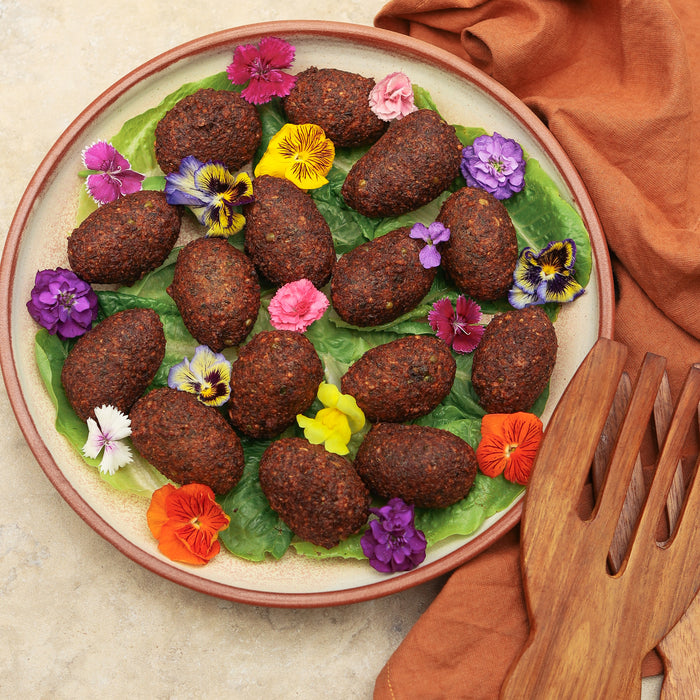What Does 'Fair Food' Mean to You?
March 12, 2019
What does 'fair food' mean to you? I mean when we look at the number of people on the planet having reached 7 billion and expected to rise to 9 billion in 2050 is the current system of food production really working or going to work? Using today's technology and resources the UN says we need to boost the food production by 60% to stop massive unrest in the future. Yet you'll still hear the same story that has been told since the 1970's - that we need bigger farms, need to genetic modify seeds to resist pests and climatic conditions and we need to develop stronger fertilisers and pesticides to ensure safe crops. This story continues but the results of this story are no better than they were 30 years ago. There is still millions hungry and the environment is exhausted and undergoing massive destruction.There is highly profitable agriculture/seed companies and pocket happy counterparts and shareholders but instead of better, the global food system is actually worse, much much worse than it should be. Food quality has diminished, safety standards have been neglected as global trade agreements are pushed through, soil organisms are being killed on a massive scale at rapid rates, farmers are a dying breed, and in certain parts of the globe farmers are committing suicide at alarming rates due to the disastrous financial situations they have found themselves in. So is our world really better with this chemical agriculture grown out of the industrial age? No it's not and the story told is sadly full of deception. Conventional farming does not produce more food. For the first year or two it does, then after that production drops year by year, costs increase as the need for fertilisers increases and does so accumulatively each year, and then this whole model becomes completely flawed. Regenerative, organic farming on the other hand maintains and increases production continuously year on year and is the only way to feed the growing population of people. More farms, smaller farms and regenerative practices everywhere. If we look at some statistics sourced from the College of Europe in Belgium, global food production equates to 30% of food production however uses 40% of land use. On the other hand small scale farmers produce 80% of the food for the undeveloped world. How do they farm?The same way they have for centuries. Using regenerative, organic practices focusing on feeding small scale communities in their local environment. What impact does this have on the environment? A positive one. It generates soil, maintains diversity and 'food miles' becomes 'food metres' instead. So who needs to take the first step towards a totally sustainable food chain? Is it farmers, manufacturers, supermarkets or should it be the consumer? A study undertaken in the Netherlands showed that 77% of people expected someone else to take this step and make it happen. This just shows that everyone is putting the responsibility to someone else. It's pretty clear that for this change to happen, we the consumer need to take the first step. We need to support our local farmer, our local producer and know where and how our food is being produced. If we don't do this, then we are simply another feeder of the outdated industrial agriculture story that continues. It continues thanks to the money we are all spending by believing the sales pitch of these chemical/seed companies. In Australia, the National Food Plan conceived by the federal government doesn't seem to reflect the truths being presented about the global food system nor represent any of the demographic of people that actually are focused on a food system that is sustainable and resilient for our country. Addressing export food growth for economic factors is the primary concern which is better again for who? It doesn't consider the small scale farmer, the social enterprise or the community based not-for-profit all with the local communities interests at hand. It doesn't consider the consumer or the health standards of our land or people. But thankfully a bunch of people are standing up, and that number is growing. Welcome to the movement that has created the The People's Food Plan. The People's Food Plan is an idea for communities and an earth focused resilient food future. Throughout Australia, communities are coming together to showcase an element of a 'fair food' future this October. From community garden tours, to dinner parties with a purpose, individuals are recognising the way of the future is a participation and engagement model on the personal level. Each and every individual is responsible for participating and sharing information with their networks because this will create the change we need. There is such a lovely source of inspiration for events and ideas to take part in 'Fair Food Week' found below and it's never too late to organise something big or small and be part of the movement. Now is the time to act and a better food system for future generations is the outcome the little folk of today all deserve as they walk into our consumer shoes in the future. Article written by Paul Crebar - a member of the Byron Region Food Sovereignty Network.

